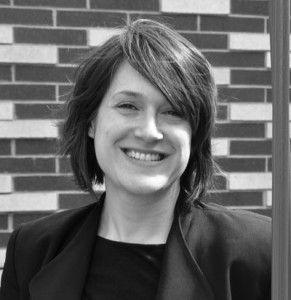 |
Maria Elena Buszek, Ph.D., is a scholar, critic, curator and associate professor of art history at the University of Colorado Denver. Her recent publications include the books Pin-Up Grrrls: Feminism, Sexuality, Popular Culture (Duke University Press Books, 2006) and Extra/Ordinary: Craft and Contemporary Art (Duke, 2011). She has also contributed writing to numerous international exhibition catalogues and scholarly journals, including, most recently, essays in Dorothy Iannone: Censorship and the Irrepressible Drive Toward Divinity (JRP-Ringier, 2014) and Mark Mothersbaugh: Myopia (Princeton Architectural Press, 2014). Her current book project, Art of Noise, explores the ties between contemporary activist art and popular music.
|